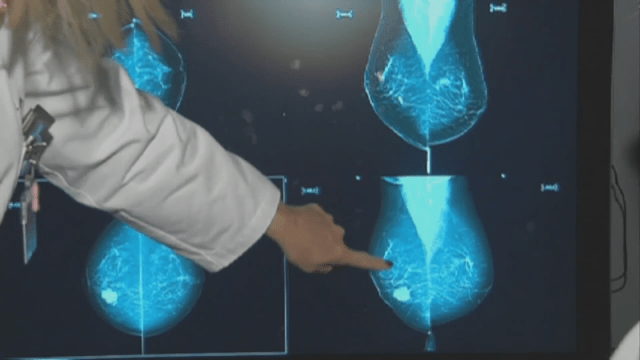KANSAS CITY, Mo. – The early detection of cancer can significantly impact survival rates, making it a critical factor in the battle against this disease.
Missouri is projected to experience over 39,000 new cancer cases in 2024, while Kansas is expected to have slightly more than 16,500 cases during the same period.
In recognition of the ongoing fight against cancer, the White House has designated April as “National Cancer Prevention and Early Detection Month.” This initiative aims to acknowledge the resilience and fortitude of the millions of Americans confronting cancer today, along with those who have triumphed over the illness.
Karen North, a cancer survivor from Liberty, shared her perspective on the importance of early detection. Having faced both early-stage breast cancer in 2014 and cervical cancer in 2015, she emphasizes the critical role of routine screenings in her recovery journey. North advocates for proactive health measures, stating, “I always say, ‘I just turn the page.’ It’s not a new normal, it’s a new chapter. I wouldn’t be here if it had not been for early detection.” Regular mammograms played a pivotal role in her health monitoring, leading to successful outcomes and a clean bill of health.
Stephanie Korth, a nurse practitioner specializing in breast health at University Health, underscores the significance of timely cancer detection. She points out that early identification of cancer provides patients with a wider array of treatment options, reducing associated risks and complications. Korth stresses, “If you find cancer at a later stage you have a lot more risks associated. It’s usually more difficult to treat and it can also spread through your body.”
While emphasizing the importance of early detection, the American Cancer Society offers comprehensive screening guidelines tailored to different types of cancer:
Breast Cancer Screening Recommendations:
- Women aged 40 to 44 have the option to begin annual mammograms.
- Women aged 45 to 54 are advised to undergo yearly mammograms.
- Women aged 55 and older can switch to biennial mammograms.
- Screening should continue for women in good health with a life expectancy of 10 years or more.
- All women should be informed about the benefits, limitations, and potential risks associated with breast cancer screening.
Colon and Rectal Cancer Screening Guidelines:
- Average-risk individuals should commence regular screening at age 45.
- Screening methods include stool-based tests or visual exams.
- Screening is recommended up to age 75 for those in good health.
- Individuals ages 76 to 85 should consult with their healthcare provider to determine continued screening.
- Screening is not advised for individuals over age 85.
Cervical Cancer Screening Protocol:
- Cervical cancer screening should start at age 25.
- Screening intervals vary based on age and risk factors.
- Regular screening is crucial for early detection and prevention.
Endometrial Cancer Awareness:
- Women at menopause should be educated about endometrial cancer risks and symptoms.
- Prompt reporting of any unusual vaginal bleeding is essential.
Lung Cancer Screening Recommendations:
- Yearly low-dose CT scans are recommended for individuals ages 50 to 80 with a significant smoking history.
- Screening discussions should include the purpose, benefits, and potential drawbacks.
- Smoking cessation support should be provided to current smokers.
Prostate Cancer Testing Guidelines:
- Men should engage in informed discussions with healthcare providers regarding prostate cancer testing.
- Screening decisions should be personalized based on individual risk factors and preferences.
Early detection through regular screenings plays a pivotal role in combating cancer effectively. Stay proactive about your health and consult healthcare professionals for personalized screening recommendations.
